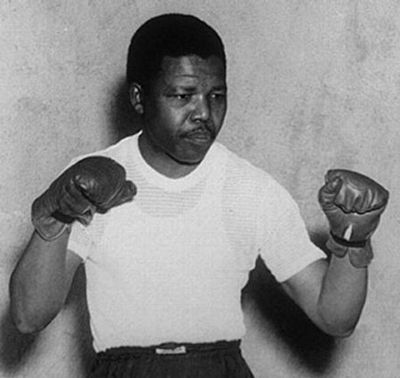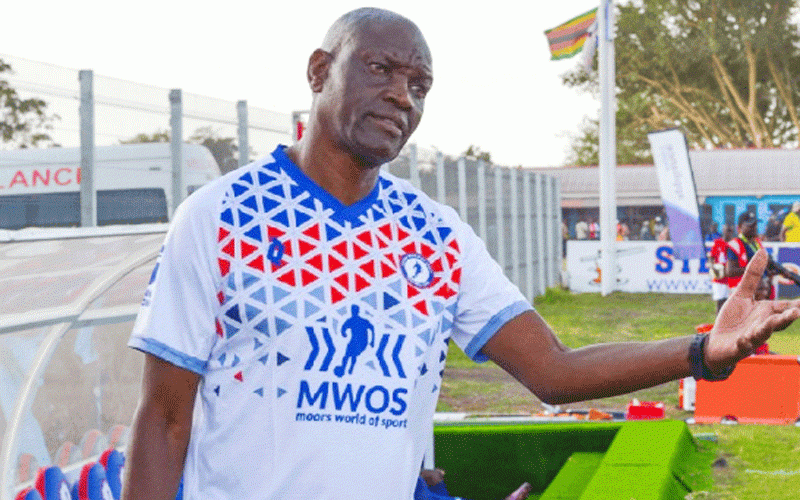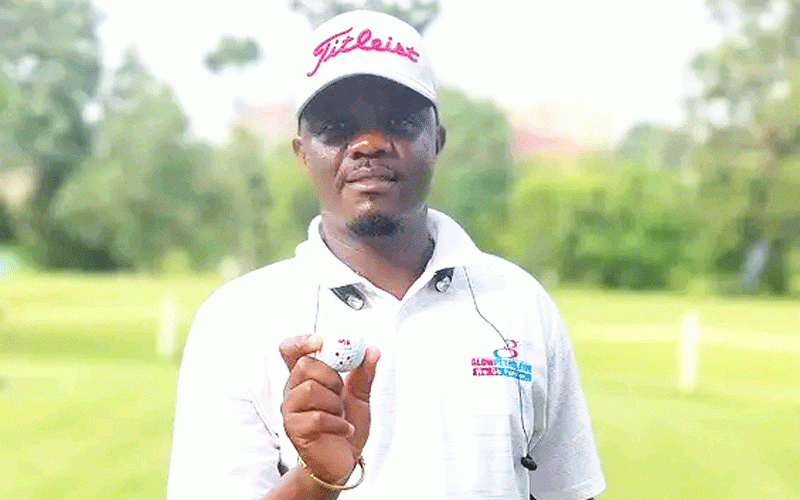
school of sport with TIM MIDDLETON

WE all picture Nelson Mandela as a great diplomat and leader, but there is also an iconic picture of Nelson Mandela as a boxer.
In his autobiography, he spoke honestly about his boxing prowess: “I was never an outstanding boxer.
I was in the heavyweight division, and I had neither enough power to compensate for my lack of speed nor enough speed to make up for my lack of power.”
No matter his ability, he derived great pleasure from competing in sport, and not just in the physical strengthening and refreshment that it brought: “I did not enjoy the violence of boxing so much as the science of it. I was intrigued by how one moved one’s body to protect oneself, how one used a strategy both to attack and retreat, how one paced oneself over a match.” Clearly he was a man who understood sport and its relation to life.
Perhaps the most crucial thing he learned from sport was how to lose or how to fail.
On one occasion he said that “it is not a matter of whether we fail or not that counts, but what we do when we do fail.”
- Chamisa under fire over US$120K donation
- Mavhunga puts DeMbare into Chibuku quarterfinals
- Pension funds bet on Cabora Bassa oilfields
- Councils defy govt fire tender directive
Keep Reading
He clearly understood and respected that we all fail or lose at times — he knew how to make a comeback. However, on another occasion he apparently contradicted this thought when he announced that, “I never lose.”
How could he possibly make such a claim? How could anyone, in fact, ever make such a claim? The answer is that he did not make any such claim as the quotation given is only half of it; what he actually said was, “I never lose: I only win or I learn”. Here was a man who understood sport and life and how to deal with all life’s difficulties and disappointments. He learned that ‘L’ does not stand for “Loser” but for “Learner”.
That should be rather obvious to us, for when we see a car being driven around town with a large letter ‘L’ on the car, it does not mean that the driver is a Loser; it means he is a Learner. When people disrespectfully place their hand in an ‘L’ shape on their forehead, we must graciously point out that the ‘L’ does not stand for Loser, but Learner. Mandela understood that; he understood that the way to lose is to learn.
However, with the greatest of respect to Mandela, it has to be pointed out that there are two problems with his statement, “I never lose; I only win or I learn.”
Firstly, in making such a statement he is saying there is no such thing as failure, which is all well and good — that is not the problem (it is actually correct).
The problem is that if we are saying there is “no such thing as failure”, then we must also say there is “No such thing as success” —how can there be “success” when there is no such thing as“failure”?
However, secondly and perhaps more importantly, in saying that he either wins or he learns he is implying that he does not learn anything when he wins and that is a big problem. The sad thing is that it is also a fact; people do not learn when they win. What we need to realise is that we play sport at school to learn, whether we win or lose. We must learn, even when we win.
The key point in all of this is to learn, whether we win or lose, whatever happens. The learned among us may have realised that an anagram of learn is “renal” which as we also may know refers to the kidneys.
The function of the kidneys includes “maintaining overall fluid balance, regulating and filtering minerals from blood, filtering waste materials from food, medications, and toxic substances, creating hormones that help produce red blood cells, promote bone health, and regulate blood pressure”.
We might note, therefore, that the function of learning is similarly to maintain balance in the child, to regulate and filter truth from lies, to extract all that is wasteful, to create opportunities for growth and a positive foundation for a healthy life.
Sport as a physical activity certainly enables all such to be achieved, but it also is intended to provide all such conditions on an intellectual and emotional level. And we need to do all of that when we win or lose.
So Mandela the boxer is right: We never lose, but equally we must declare that we never win.
As he also once said, “Do not judge me by my successes, judge me by how many times I fell down and got back up again.”
Winning and success, like losing and failure, are not important; it is what we do with them that is important.
Elsewhere, Mandela spoke about what he had learned in his life and those thoughts can equally apply to sport.
“I learned that courage was not the absence of fear, but the triumph over it.” It is not important whether we win or lose — it is vitally important that we learn. We do not need power or speed to learn that — just courage.
Tim Middleton is a former international hockey player and headmaster, currently serving as the executive director of the Association of Trust Schools. Email: [email protected]











